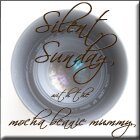 The next day, the Doctor had to work. I took the kids on the train to Hertfordshire to see The Boat. It was a golden sunshiney day. The boat was perfect. I put in an offer before That Other Bloke even saw it. That Other Bloke made an offer too. We had to wait another day, to hear who’s offer had been accepted. The girls and I returned home to find a ‘ticket’ on our boat: an official ‘Patrol Notice’ from British Waterways, urging us to continue with our journey.
The next day, the Doctor had to work. I took the kids on the train to Hertfordshire to see The Boat. It was a golden sunshiney day. The boat was perfect. I put in an offer before That Other Bloke even saw it. That Other Bloke made an offer too. We had to wait another day, to hear who’s offer had been accepted. The girls and I returned home to find a ‘ticket’ on our boat: an official ‘Patrol Notice’ from British Waterways, urging us to continue with our journey. This is a very complicated legal area and a subject that is under much debate at the moment. BW are currently holding a consultation where they plan to re-define what constitutes a 'neighbourhood' on the rivers Lea and Stort. British Waterways believe that there is a problem in Hackney where there are a lot of boats moored ‘on the towpath’, specifically in the area to be used for the Olympics. It is possible that when the (licence paying) continuous cruisers are removed from the area, that there will then be visitor moorings available to purchase, attracting an appropriate mooring fee fitting to those boaters that wish to attend the Olympics.
I would strongly urge anyone who is interested the lifestyle that I am describing on this blog, to take five minutes to read some further information at http://www.londonboaters.org/ and to make your views known to BW. (See also this recent Guardian article)
However, for this post I will try to keep to how this affects my family personally.
Every summer we enjoy taking what the guidelines define as a “genuine progressive journey”. From our winter mooring in Angel we have travelled as far as Hemel Hempstead on the Grand Union and Bishops Stortford on the River Stort. We enjoy discovering new neighbourhoods and moving every 14 days.
However, the weather makes cruising less pleasant in winter and canal ‘stoppages’ for maintenance can restrict cruising during winter months. So we always apply for, and pay for, a winter mooring in Angel, Islington. Because of this our GP, our health visitor, childminder and Big Sister’s nursery are in Islington. A balance of cruising in summer and mooring in winter has worked very well for us for eight years. During summer we would take Big Sister on the train from The Countryside to the childminder’s home in Angel.This winter, we now have two children, but commuting with a double pushchair in the London rush hour is a different ball-game. I just can’t hold the weight of two kids on a tube escalator in a double push chair, and you’d be lucky to get it on an overcrowded London bus. Folding the contraption involves partly dismantling the thing whilst holding a baby and controlling a three year old. It’s just not practical. (Believe me, I have tried it. My 3 year old had to hold the baby, who was writhing on the pavement, while I wrestled with the pushchair, and the bus driver patiently waited.) But my maternity leave was over, the children had to go to childcare and we did our best to sort it out. I confess that we did linger too long at the Angel visitor moorings.
The British Waterways guidelines explain that circumstances where it is reasonable to stay for longer than 14 days are only where cruising is prevented by causes outside the reasonable control of the boater. For example, engine break down, canal stoppages or serious illness. “Unacceptable reasons for staying longer than 14 days in a neighbourhood or locality are a need to stay within commuting distance of a place of work or of study (e.g. a school or college).” Lingering too long can earn you the derogatory nick-name of “continuous moorer” from other genuinely cruising boaters. British Waterways calls it “bridge hopping” if you do not move far enough, often enough. I am not defending overstaying at a visitor mooring without an acceptable reason. However, I am concerned that redefining ‘neighbourhood’ will dramatically increase the distances that boaters like me have to travel every 14 days.
"Continuous Cruisers (houseboat owners without a fixed mooring) usually live and move in their homes around a certain area, their children attend local schools, they have jobs based locally, they have access to healthcare for themselves and their families, and they have strong links within the local community we’re all part of." London Boaters Website.
The BW guidelines do not have the force of law but attempt to interpret the law as set out in s.17 British Waterways Act 1995. The London Boaters group have collated some guidance to London’s continuous cruisers, in helping us to understand where we stand legally.
“It is said, Section 17 (3) is a compromise and as such open to the various interpretations that have lead to such works of fiction as the ‘mooring guidance for continuous cruisers’ and the term ‘continuous cruiser’ itself as British Waterways have made successive attempts to dilute and subvert the application of this law. A law that allows most liveaboards to live the way they choose to.”
The Kennet and Avon Community Boaters website is another good resource that is currently commenting on this issue:
“Damian Kemp of BW clarified that changes to mooring zones have to be approved by the BW Boating Team, headed by Sally Ash, and that the local waterway managers have no power to change mooring zones. BW has stated that it wants to start implementing the local mooring strategy by mid to late July 2011, in other words to have the new mooring restrictions in place.
...The 1995 British Waterways Act did not define “place” or specify any minimum distance or cruising pattern, and so the mooring strategy steering group is being asked to set a standard which is beyond BW’s legal powers to enforce.” (K and A community website.)
What do you think? Please take a moment to write a comment on The London Boating Communities Facebook Page. stating your connection with the waterways, i.e: walker, local resident, fisherman, boater etc. British Waterways claim that there is widespread opposition from dog-walkers, anglers and other canal users to the recent increase in boats on the River Lea.
Getting a ‘ticket’ on the day that we returned from viewing this Dream Boat seemed like a sign. This time we are going to leave London for good. Obviously we are not going to escape any new regulations imposed by British Waterways, but we will be leaving an area where visitor moorings are popular and over populated.
The next day the vendor accepted our offer. We beat That Other Bloke! The boat shall be ours! I phoned Captain Dad to update him on our lifestyle changes. Captain Dad is a bearded Merchant Seaman. He has spent his life cruising the oceans of the world and lives in a sunny house in a Capetown suburb, with Table Mountain in the distance.
“I’m going to be captain of two ships: A fleet!” I told him proudly.
“That would make you a commodore,” he replied proudly.
 |
| Me, taking command of my new vessel*. |
What Can You Do?
You are entitled to let British Waterways know your views and since you have not been consulted I encourage you to send a response to their proposals:
If you don’t have access to the internet you can send a letter to Damian at British Waterways, 64 Clarendon Rd, Watford, WD17 1DA.
Even if you don’t agree with the London Boaters it is your right to have your views heard. If you do agree with us please argue on our behalf. Your support is appreciated.
*Photo Credit: The picture of Kiera Knightly as Elizabeth Swann comes from The Torch Online.com













